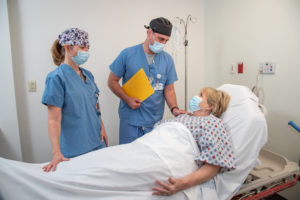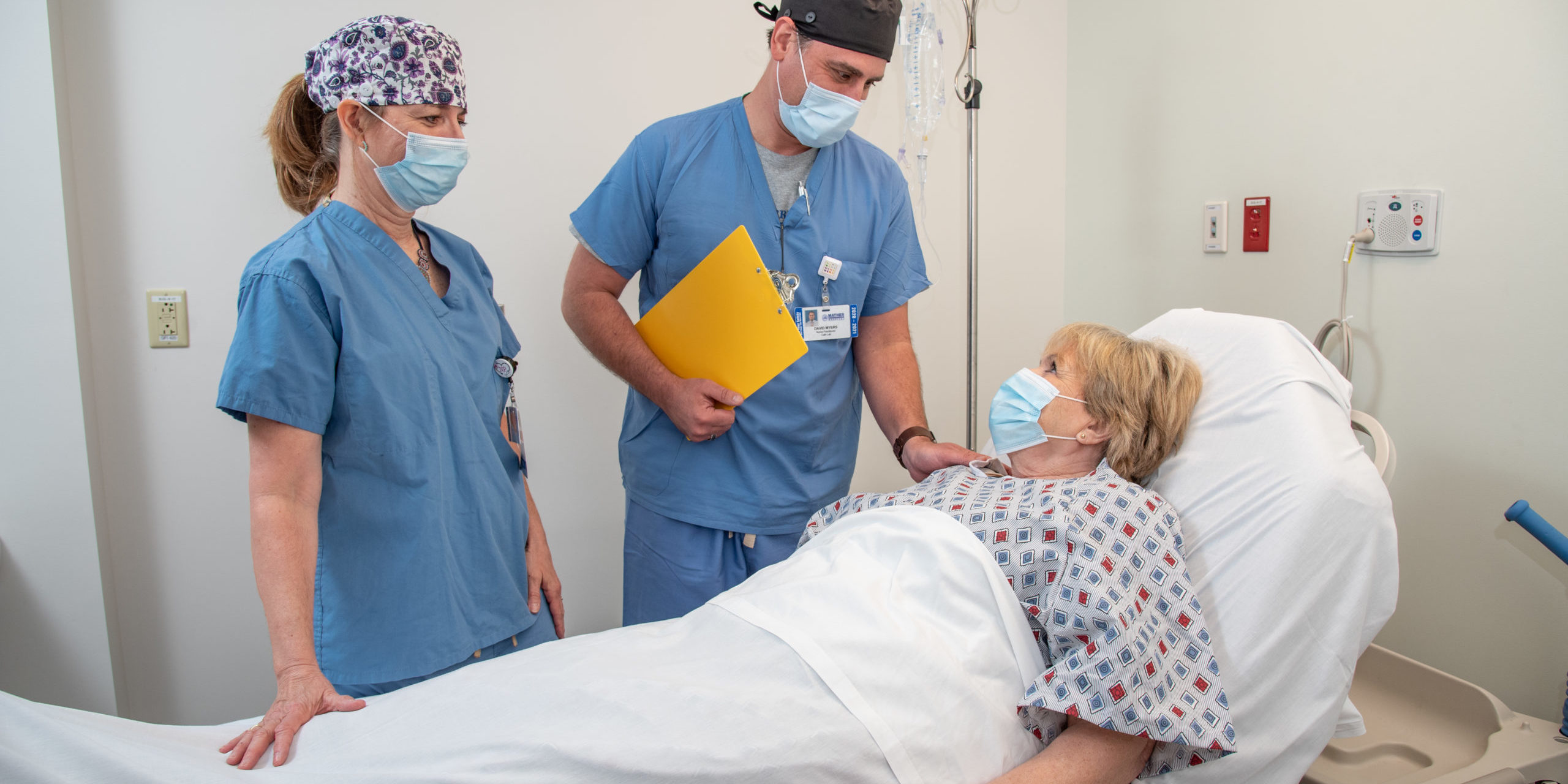 How you recover after surgery varies greatly depending on the type of procedure and if you have any other conditions that affect your overall health and ability to heal. A minimally invasive or outpatient procedure recovery period will be far different than a more invasive procedure. Immediately following surgery, it may take a few hours until the effects of the anesthetic wear off. When the anesthesia has worn off, that’s when the recovery process truly begins.
How you recover after surgery varies greatly depending on the type of procedure and if you have any other conditions that affect your overall health and ability to heal. A minimally invasive or outpatient procedure recovery period will be far different than a more invasive procedure. Immediately following surgery, it may take a few hours until the effects of the anesthetic wear off. When the anesthesia has worn off, that’s when the recovery process truly begins.
Once you’re discharged and recovering at home, it’s important to follow the post-surgical care instructions your surgeon gives you. Following these instructions is key to keeping your recovery on track and minimizing any possibility of complications. Here are some helpful tips to aid you on your road to recovery:
- Follow the doctors’ orders! Some patients only follow the instructions that they think are most important and then disregard the rest. For example, simple instructions like “no baths,” or “don’t lift anything heavier than 10 pounds,” may seem silly, but they’re there for a reason. Soaking in a bath can be harmful because it can weaken the incision line. Lifting anything heavier than 10 pounds can add physical stress that could raise blood pressure and, in turn, cause a wound or incision to break open and bleed. Lifting or performing bending or twisting exercises after surgery can also result in a hernia. So, follow all your surgeon’s instructions. If you don’t understand anything, ask your doctor or nurse for a more detailed explanation.
- Keep your follow-up appointments. If you’re feeling good and your wound is healing well, a follow-up appointment may seem unnecessary, just another expense or a waste of time, but nothing could be further from the truth. Your doctors will want to know how you’re feeling and make sure your incision is healing properly. Your surgeon may also be checking up on other things you might not see or be aware of. They may do follow-up blood work, look for signs of infection, or want to make sure that your condition has been adequately treated by the surgery. You may also require monitoring of and adjustments to your medications following surgery.
- Prevent infection. Preventing an infection is one of the most important things you can do to have a good post-operative outcome. Depending on the nature of the surgery, your bandage or dressings may need to be changed at an interval directed by your surgeon. If you must change a bandage, make sure you wash your hands before touching the area. This is one of the easiest, yet most important parts of incision care.
- Pay attention to your body. Looking at your incision may not be on the top of your list of favorite things to do, but it’s important to look at it at regular intervals. Is it pink or red? Is there drainage? If so, what color is it? If you have stitches, are they intact? These are all important things to look for. They’ll help you gauge if your healing properly. If something doesn’t look or feel right, you should contact your doctor.
- Make sure you’re getting proper nutrients. Many people have a reduced appetite following surgery, feel nauseated or can become constipated. Staying hydrated and eating a healthy diet after surgery can promote healing and even help minimize complications. If you’ve been prescribed a special post-surgery diet, stick to your diet plan.
- Control your pain. Keeping your pain under control after surgery is important to the healing and recovery process. Being pain-free is not a reasonable expectation, instead pain should be controlled to enable movement and rest. The goal of pain control is not to stop pain completely, especially after major surgery. Doing so can lead to medication abuse, particularly if opioids are involved.
- Move. Depending on the type of procedure you’ve had and what your doctor’s post-op directions are, most patients who are physically able will be expected to walk or sit on the edge of the bed as soon as possible. Resuming light activity like walking can help prevent complications such as blood clots and even constipation.
Unfortunately, complications can still arise after surgery, but staying on top of your post-operative care plan can minimize your risks. The following are signs and symptoms of possible complications:
- Difficulty breathing
- Fever over 100 degrees F
- Black stools (this could indicate internal bleeding)
- Increasing or worsening pain
- Increased swelling, pain or redness around the incision
- Pus or foul-smelling discharge from the incision
- Confusion, dizziness, or fainting
- Persistent diarrhea, constipation or vomiting
- Inability to keep down food or drink
- Unexplained pain in one or both legs
If you experience any of these symptoms you should contact your physician immediately. David Schwartzberg, MD, surgeon at Mather Colorectal Surgery says, “surgery can often be scary, however with the proper work up, the correct reason for surgery, and a meticulous operation with attentive postoperative care, patients do very well and often do not have any issues with recovery.”

